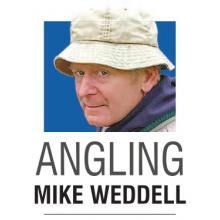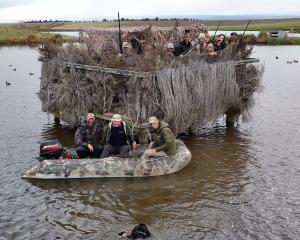

In settled conditions trout will be feeding most of the day and night too probably.
I mention night, as I notice the Upper Clutha is very low which is ideal for sedge fishing. Ideally it should be warm and calm but do not be put off if it is wet, cool or windy. I have even had good catches when it has been frosty.
Do not be put off if there are no fish rising, although it is more interesting if they are.
I have caught plenty of fish when there are no rises and I presume that is because the trout are looking for surface insects and the first one they see is my dry sedge.
Do not worry if your sedge sinks as when it is retrieved it is a good imitation of a sedge pupa. Sedge pupae swim beneath the surface heading for the shore where they emerge.
All of the above holds true on most waters as there are few rivers and still waters that do not have populations of sedge.
The big snow-fed rivers the Waiau, Clutha and Waitaki are the easiest to fish as they do not involve much moving about being big waters there are usually plenty of fish in a small area to fill in a couple of hours.
It is a good idea to fish an area you intend to fish at night in daylight so you know your way round. Look for land marks such as silhouettes of trees or hills on the far side that can be recognised in low light conditions. Also, if you intend to go wading, wade where you intend to fish at night and refrain from wading too deep. Knee-deep is deep enough and safer than going deeper.
On still waters wait until fish start to rise and it is difficult to predict where that will be. Once they start to rise they will disappear at regular intervals as they will constantly be on the move. They will come back again as they will patrol a regular beat.
Wherever you fish in the dark, fish a strong tippet as you will have to play the fish hard as it is difficult to follow them. This is especially true in dams that are weedy.
Last weekend, I was running a course for the Southland Fly Fishing club. The first day is theory and casting with the second day on the Mataura.
Unfortunately, the river did not live up to its reputation with not much fly in evidence so there were few rises. Of course we did the logical thing and fished nymphs.
One of the pupils had a good day catching their first trout on the first fly they had tied. And it does not get much better than that.













